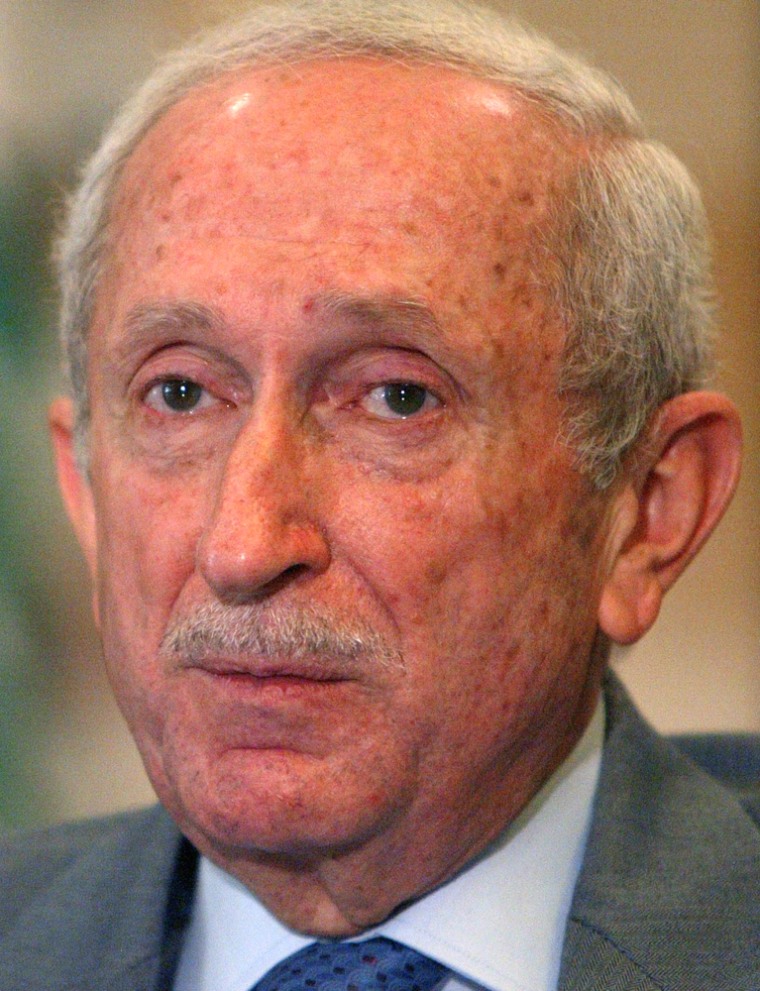Lebanon’s president reappointed Omar Karami as the nation’s prime minister on Thursday, 10 days after the staunchly pro-Syrian Karami stepped down amid street protests and international pressure.
Karami immediately called for a national unity government, which he invited the opposition to join.
“The difficulties we all know cannot be confronted without a government of national unity and salvation,” he said.
The decision by pro-Syrian President Emile Lahoud came after legislators, ignoring weeks of popular anti-government protests, advised the president to rename Karami. He was virtually assured nomination after 71 of 78 legislators put forward his name, more than half of the votes required in the 128-member legislature.
Under the constitution, the president is obliged to comply with the choice of the majority of legislators.
Karami will have the difficult task of forming the next government after consulting with parliamentary blocs. He and the pro-Syrian camp have been calling for a national unity government but opposition politicians have said that was a trap to bring opposition members into Cabinet without giving them any say in policy making. The opposition wants a neutral government.
The opposition has criticized Karami’s reappointment.
Reappointment ensures Syria's dominance
The pro-Syrian parliament members apparently were emboldened in their choice by a thundering protest in Beirut on Tuesday that showed loyalty to Syria, countering weeks of anti-government and anti-Syrian demonstrations.
Bringing Karami back ensures Damascus’ continued dominance. Syria is keen to keep its hold on Lebanese decision-making as it pulls its forces back to the Bekaa Valley and negotiates with the government in Beirut on the troops’ full removal at a later date.
Opposition member Samir Franjieh on Wednesday described a reappointment of Karami as an escalation by the government aimed at scuttling any attempts at dialogue.
“It is a step that greatly challenges the opposition and the people’s feelings,” said Franjieh. He did not say how the opposition plans to react.
On Wednesday, President Bush said that Syria's withdrawal plans in Lebanon are just a "a half measure" and that Syrian intelligence services exercise "heavy handed" influence in Lebanon's government.
Bush reiterated his call on Syria to remove all of its soldiers and intelligence forces from Lebanon and said the United States was consulting with allies about possible steps if Damascus refuses.
"One thing a lot of people don't understand is Syrian influence is heavy handed through the involvement of intelligence services throughout the government," the president said in a brief question and answer session in the Oval Office. "And they must remove both for the election to be free." Parliamentary elections are scheduled for May.
According to a plan announced Monday, the 14,000 Syrian troops in Lebanon are to pull to the eastern Bekaa Valley, then to the border before both sides work out their removal from Lebanon. But they announced no timetable.
Lebanese officials said the pullback would be completed by March 23. Deputy Prime Minister Issam Fares said he believes the next phase, the full withdrawal from Lebanon, will be “speedy” — but gave no date.
Lebanese Defense Minister Abdul-Rahim Murad said the movement would include the main Syrian intelligence offices in Beirut, a key Lebanese opposition and U.S. demand.
